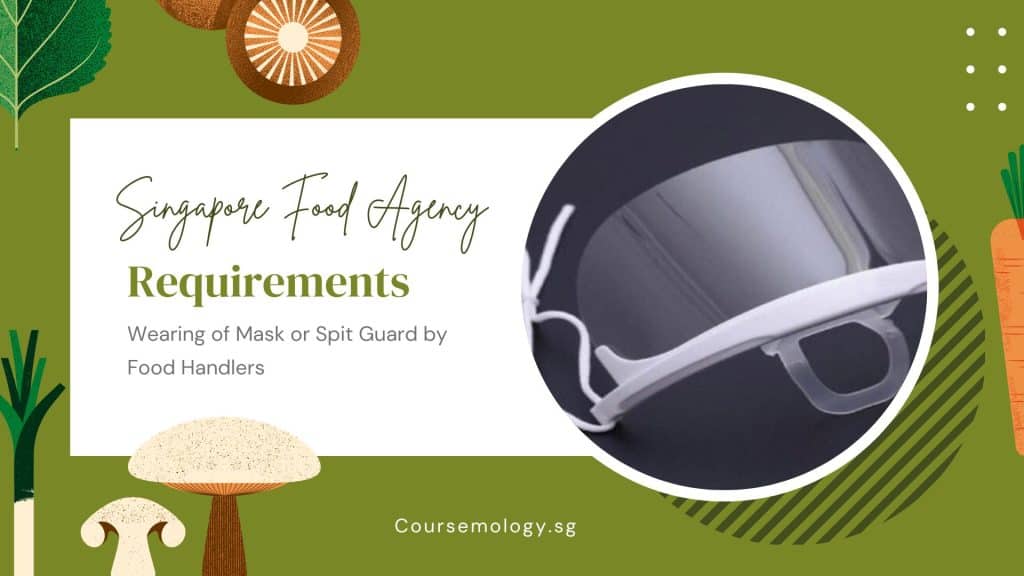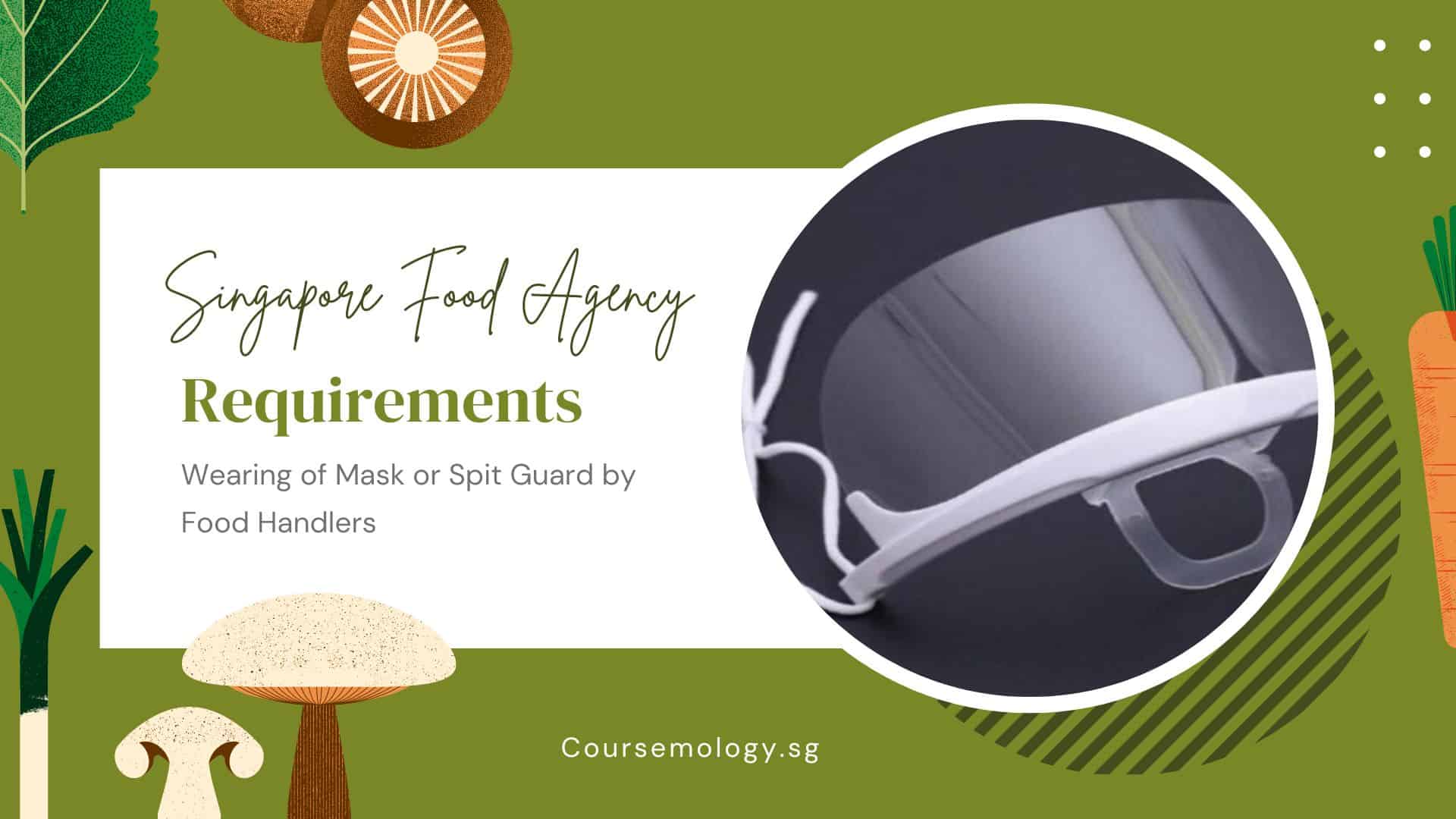
Wearing of Masks or Spit Guards by Food Handlers
Food handlers in licensed food establishments are required to wear masks or spit guards to prevent contamination of food during preparation and handling. This requirement applies to personnel engaged in the preparation of ingredients and/or cooking of food, packing of cooked and/or Ready-to-Eat food, dishing of cooked and/or Ready-to-Eat food, and preparation of drinks.
Activities Requiring Masks/Spit Guards:
This requirement applies to personnel in retail food establishments, including restaurants, takeaways, food shops in pubs/bars/nightclubs/discos, caterers, street hawkers handling or preparing ready-to-eat food for sale (e.g., ice cream), and food stalls in hawker centers, coffee shops, canteens, food courts, and temporary fairs. It also applies to personnel in market stalls, market produce shops, and supermarkets involved in the above activities, such as cooked meat stalls and deli counters. The requirement also extends to personnel in non-retail food establishments, including food manufacturers, central kitchens, meat, fish, and egg processing establishments, and slaughterhouses.
Masks and Spit Guards:
Masks and spit guards should cover the mouth and nose of food handlers and may be disposable (e.g., paper masks, surgical masks, N95 masks) or reusable (e.g., cloth masks). A poster is available for more information on the use of masks and spit guards in English, Chinese, Malay, and Tamil. Non-compliance with this requirement may result in firm action by the SFA.
Activities Exempt from Masks/Spit Guards:
Personnel bringing plated food to consumers, delivering packed/bento food to consumers, engaged in cleaning activities (e.g., collection of used crockery/utensils, washing or cleaning of dining tables), stocking and storing of pre-packed goods, collection of payments from consumers, and involved in the sale of raw and/or non-Ready-to-Eat market products are not required to wear masks or spit guards.
Frequently Asked Questions
What is the reason for food handlers wearing spit guards?
Food handlers wear masks or spit guards to prevent the contamination of food during preparation and handling. This is done by blocking respiratory particles released through respiratory or oral means and preventing them from coughing or sneezing onto the food.
Why are face shields not allowed for food handlers?
Face shields are not considered effective physical barriers as they have a large gap at the bottom of the shield which can cause food contamination. Spit guards, on the other hand, have bottom-up impermeable plastic shields that cover the mouth and nose.
What happens if a food handler does not wear a mask?
SFA will take action against a licensee found to be in breach of the licensing condition issued under the Environmental Public Health Act 1987 (“EHPA”), Sale of Food Act 1973 (“SOFA”), and Wholesome Meat and Fish Act 1999 (“WMFA”).
What if a food handler takes off their mask?
It is the licensee’s responsibility to ensure their personnel complies with mask/spit guard-wearing requirements. Failure to do so may result in enforcement against the licensee.
Will there be a fixed frequency for changing masks? Will dirty spit guards result in fines?
Personnel handling food must wear clean attire, including a clean mask/spit guard. Enforcement may be taken against an offender observed wearing dirty attire. Disposable masks should be changed when they become moist, soiled, or damaged. Reusable cloth masks or spit guards should be washed thoroughly with soap and water regularly and replaced if worn out.
Where can spit guards be purchased?
Spit guards can be purchased online or from kitchen equipment suppliers.
Why do workers in meat, fish, and egg processing lines need to wear masks/spit guards?
To ensure food safety and minimise potential contamination along the production line, SFA requires all personnel to wear a mask/spit guard while working within the premise.
Why are cold stores exempt from wearing masks/spit guards?
Personnel involved in the stocking and storing of pre-packed goods at cold stores are exempt as the food products are pre-packed and the risk of contamination is low.
Are slaughterhouse workers required to wear masks/spit guards?
Slaughterhouse workers must wear masks as part of their personal protective attire to ensure food safety and protect against diseases from the animals. This is a licensing requirement effective from 8 Sep 2022.
Source: SFA website
Visit our Food Safety Courses for more information about Food and Beverage industry-related courses.


